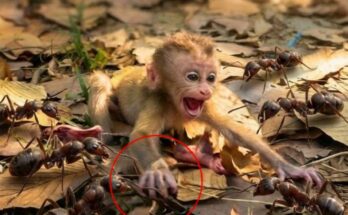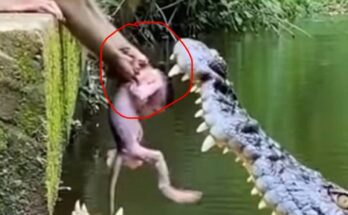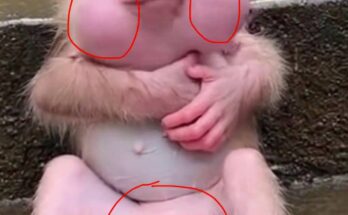
Eventually, someone contacted a local wildlife rescue team known for their compassion and dedication. The team, led by a woman named Dara, arrived within an hour. Carefully observing Coco from a distance, they realized he was dehydrated and possibly injured. Any sudden move might scare him into the busy road, so the rescue needed to be handled with patience and care.
Dara and her team set up a safe perimeter and used soft vocal calls to gently coax Coco. They placed a blanket over a crate filled with bananas and waited. After a few hours, driven by hunger and exhaustion, Coco finally crept into the crate. The team moved swiftly but gently, securing him and rushing him to the rescue center.
At the center, Coco received fluids, medical care, and plenty of nutritious food. The vets confirmed he had a minor leg injury, likely from falling or being chased. Over the next few days, Coco began to recover. His eyes grew brighter, his fur healthier, and he even started playing with a stuffed toy given to him by one of the volunteers.
As Coco regained his strength, plans were made to slowly introduce him to other macaques at the center. Social animals by nature, rhesus macaques thrive in groups, and rescuers hoped Coco would soon form new bonds. Day by day, his confidence grew, and soon, Coco began grooming and interacting with the others, a heartwarming sign of healing.
Coco’s rescue story is more than just one monkey’s survival. It’s a testament to the power of compassion, teamwork, and the importance of protecting wildlife. Without the villagers’ concern and the swift action of Dara’s rescue team, Coco’s fate might have been very different. Now, he has a second chance at a happy life, surrounded by those who care.


